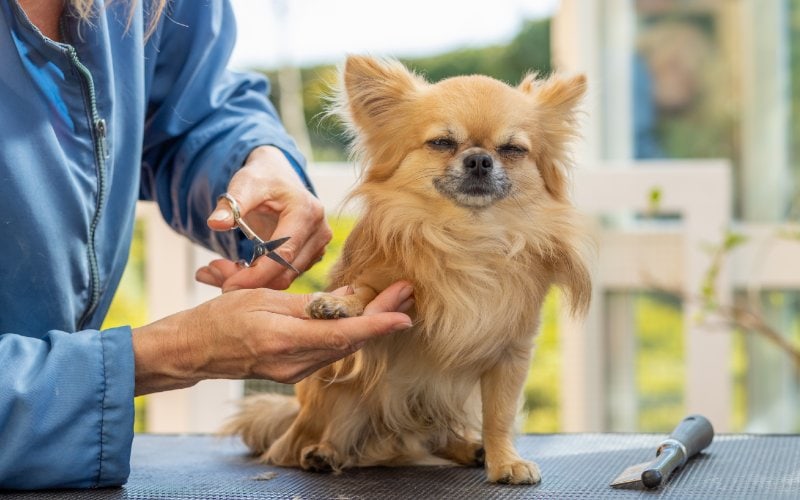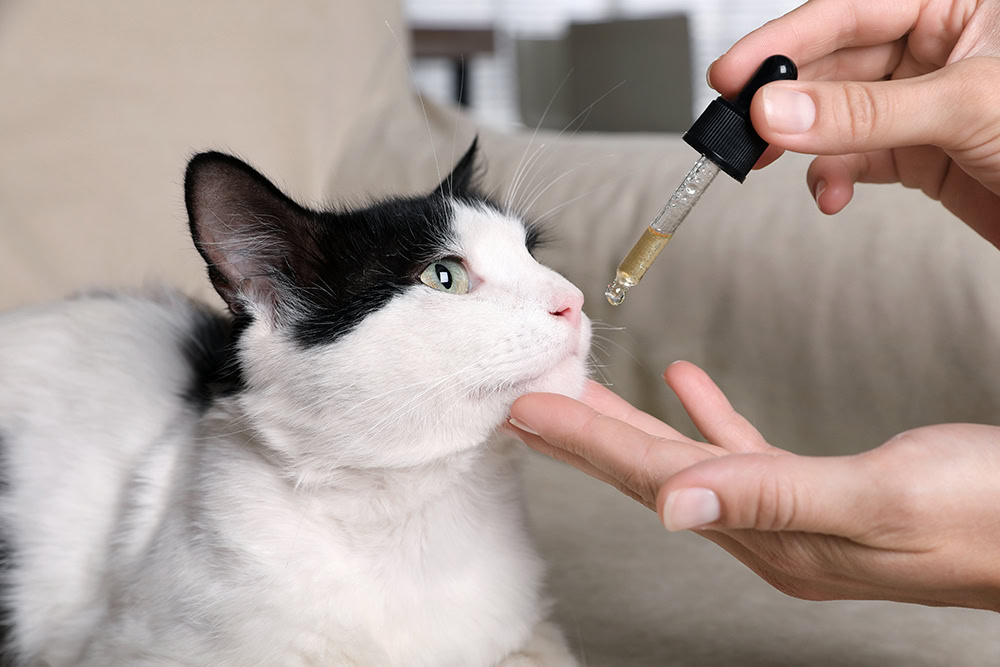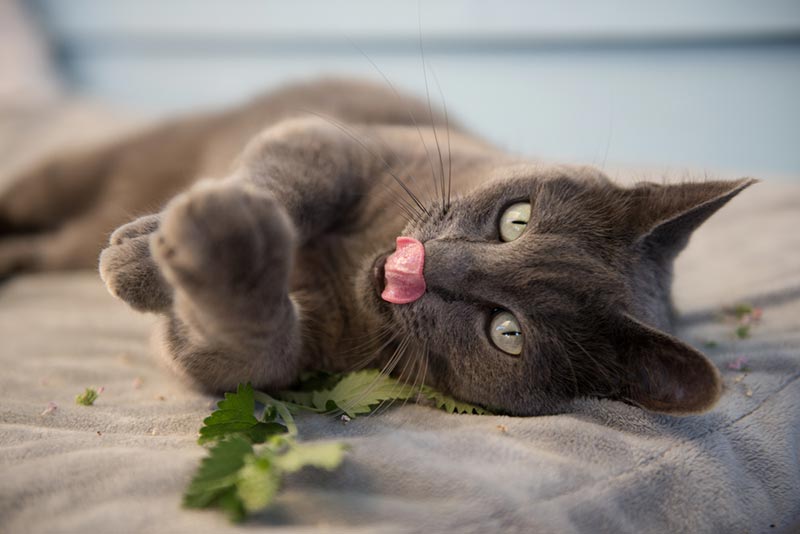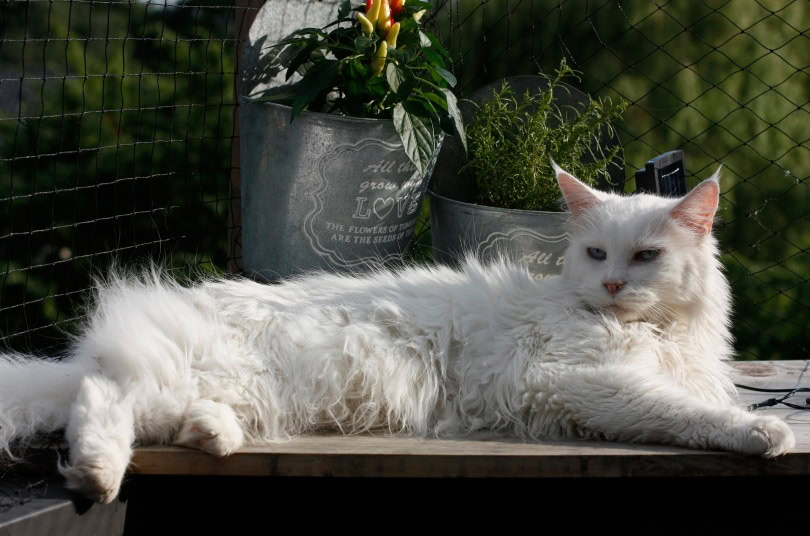VET APPROVED

The information is current and up-to-date in accordance with the latest veterinarian research.
Learn more »Many dog breeds grow hair between their toes. While this hair is natural, it can cause a range of problems in some cases. For instance, in the winter, it can catch ice and snow, causing tiny snowballs to form between your dog’s paw pads. It can also become dirty, attract bugs, or even tangle. Therefore, it’s sometimes necessary to trim your pet’s paw fur, even if you don’t trim anywhere else.
I have a Siberian Husky, and his paws get very hairy. They have to be trimmed every few months, but those are the only parts of his body that I ever take a pair of scissors to.
Fortunately, trimming your dog’s paws isn’t that challenging if you know what you’re doing. Here are a few tips to make it go as smoothly as possible.

The 8 Vet-Reviewed Tips on How to Trim Hair on Dogs’ Paws
1. Pick the Right Scissors
You’ll want to select the right tools for the job. Otherwise, you’ll find the whole experience much more complicated than it needs to be. We recommend round-tipped scissors that are specifically designed for dogs. Small clippers work, too, especially if you have a larger or very furry dog. It’s much easier to be precise with smaller scissors, though.
You’ll probably need to purchase special grooming tools just for your pet’s paws (and face). The larger scissors and clippers sold for dogs may not work as well on paws.
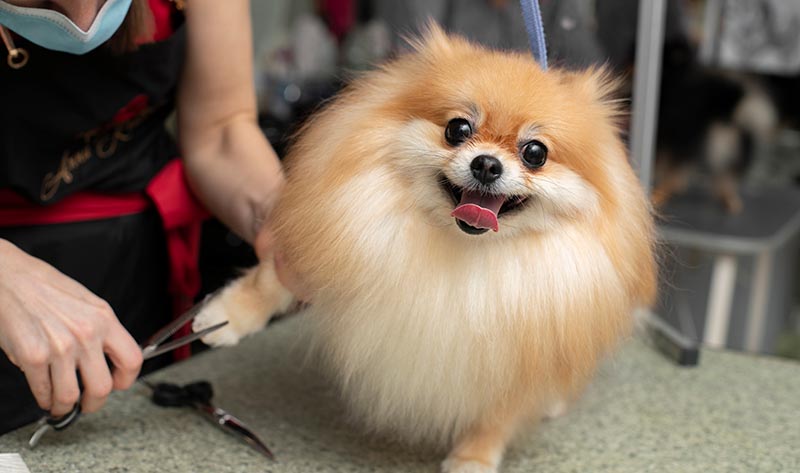
2. Handle Your Dog’s Feet
The hardest part of trimming your dog’s feet is having your pet sit still for the endeavor. You can help them sit still longer by handling their feet regularly. If your dog is particularly against anyone touching their paws, you may need to have several sessions where you just touch your dog’s feet and give them treats. This helps them be a bit more comfortable with all the foot-touching, making your job much easier.
We highly recommend starting this process as early as possible. It’s much easier to get puppies used to their paws being handled than adult dogs. However, don’t fret if your dog is already older. You can train them to accept their feet being handled, too.
3. Cut Enough Fur
It’s normal for pet owners to be fearful of taking too much hair. However, when it comes to your dog’s paws (especially between their toes), this isn’t really possible. You should generally aim to cut your dog’s paw fur as short as possible unless you’re going for a particular grooming style. Some breeds do have longer fur on their paws and will be exceptions to this rule.
However, if you’re just trying to trim between your dog’s toes, cut the fur as close as you can. It will help extend the time between trimmings and make your dog comfortable.
Of course, don’t get so close that you accidentally cut your dog. You’ll still have a small covering of fur. Your goal isn’t to get all of it.
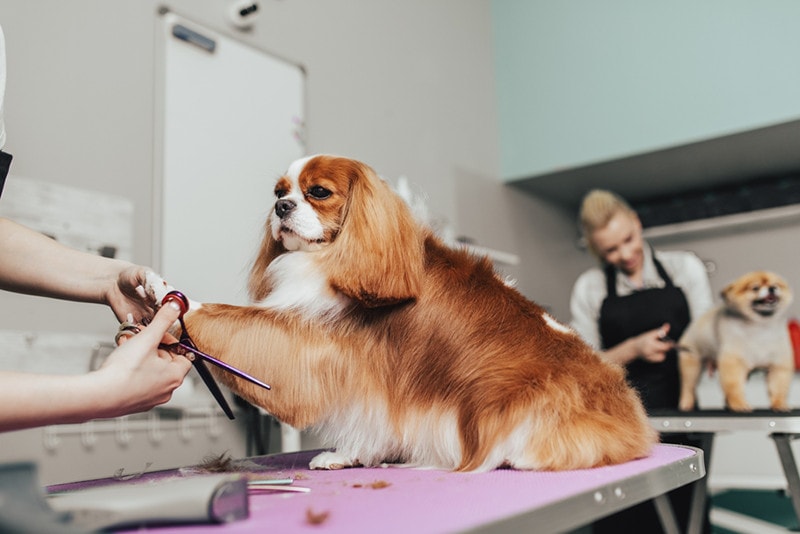
4. Get All the Cracks
I can’t tell you how many times I trimmed my dog’s paws, thinking I had gotten everything—only a few days later for the hair to peek out of some crack I missed. Dog paws have many crevices for hair to hide in. It’s important for you to get in all these cracks. Take your time and be thorough.
While you may be in a rush because of your dog’s waning patience, the last thing you want is to need to trim their paws again in a week. If you’re in doubt, it does help to have an extra set of hands to go over the paw again and ensure you didn’t miss a spot.
You can use a soft-bristled brush to help pull the hair up if needed. However, try to skip this step if you can, as many dogs, particularly, don’t like the feel of bristles between their toes.
5. Follow the Natural Shape of the Paw
When trimming the top of the paw, follow the paw’s natural shape—unless you’re following a particular style and know what you’re doing. In other words, try to have the fur about the same length all around the paw to give it a natural, clean appearance.
When in doubt, you may want to ask a groomer how to trim the top of your pup’s paw. Of course, in the world of the internet and YouTube, it’s pretty easy to find guides specific to your dog’s breed.
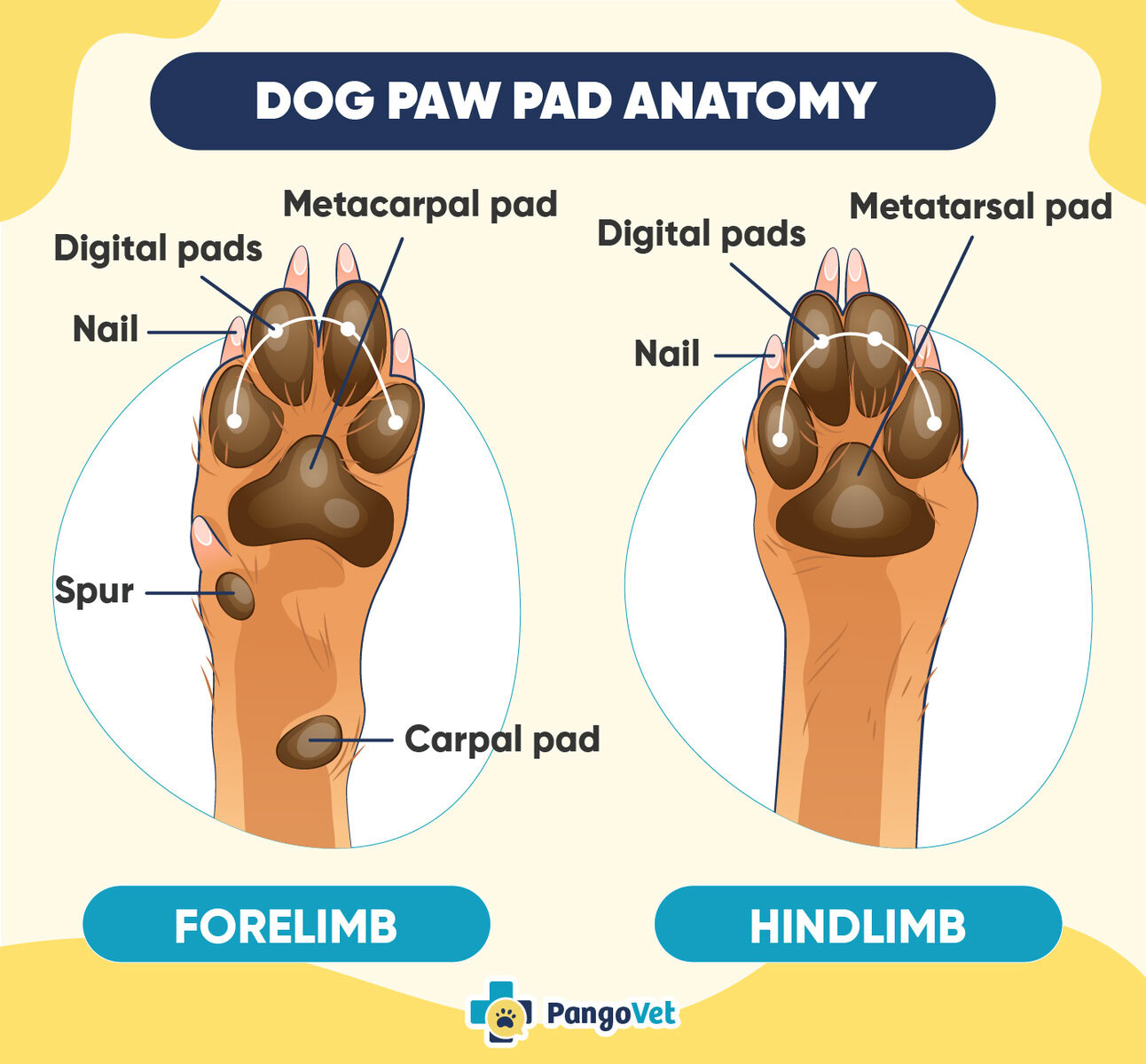
6. Hold Your Dog’s Leg Close
We recommend holding your dog’s leg close to your body while trimming the paw, not just holding it. This helps the dog feel more secure and prevents kicking. If you’re just holding your dog’s paw and they try to kick, there isn’t much you can do. However, if you’re holding their leg, you can help stop much of the movement.
It may help to have an extra set of hands too. One person can hold the leg and stabilize the paw, while the other can do the trimming. Either way, just be sure the whole leg is stabilized.
7. Use Coconut Oil or Vaseline
Trimming can leave your dog’s paws a bit uncomfortable. Therefore, you may want to rub their paws with coconut oil, vaseline, or a dog-specific lotion. This helps their paws stay hydrated and can prevent irritation and cracking. It’s similar to how humans put on lotion after shaving.
There are many other natural oils and balms that will work. Just be sure to use something formulated for dogs and do not let your dog lick it off.
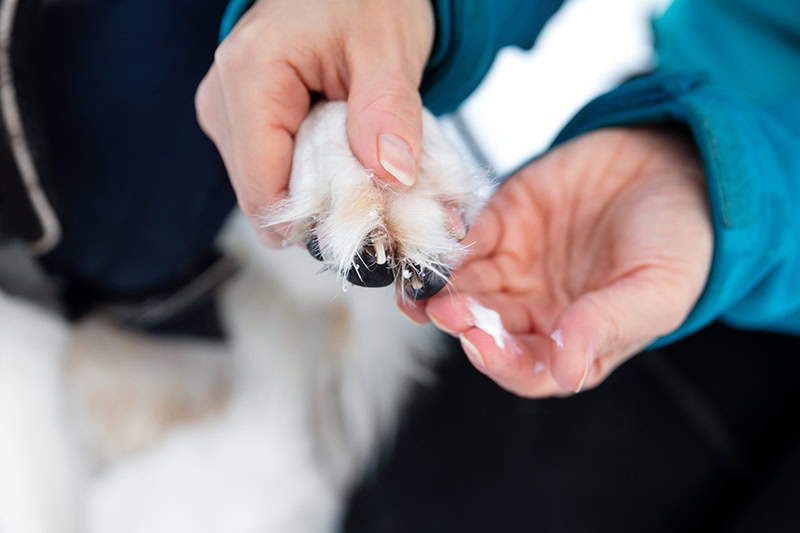
8. Don’t Forget Lots of Treats
You should reward your dog throughout the process and afterward. Grooming can be stressful for your dog, especially if they aren’t used to it. Providing them with plenty of treats helps ensure that they see the situations as positive, which may help make things easier next time.
Plus, treats can be a huge distraction while you’re getting busy. Giving your dog treats while you’re trimming can be a fantastic job for a child too, especially if they want to help. For dogs that are extra unsure of grooming, consider a chew or filling a Kong with peanut butter (or another yummy treat).

Final Thoughts
Trimming your dog’s feet is an often-overlooked part of their grooming needs. However, it’s essential to prevent mats and dirt from building up between their toes. Plus, fur on the paws tends to get messy.
It may seem like a huge ordeal. However, it isn’t that complicated. With just a few tips and guidelines, you can easily trim your dog’s paw fur at home.
Featured Image Credit: Frank11, Shutterstock
